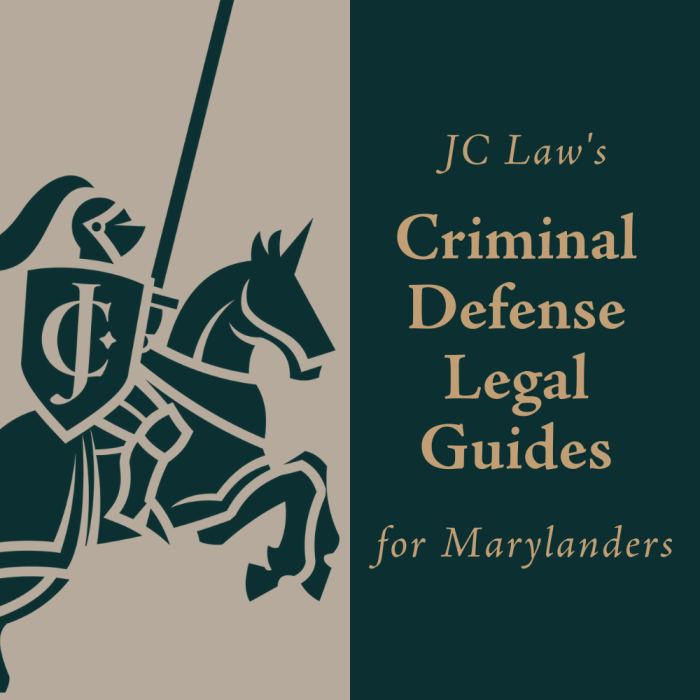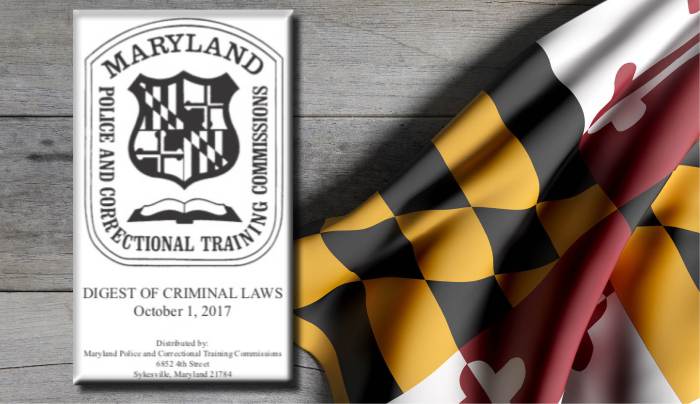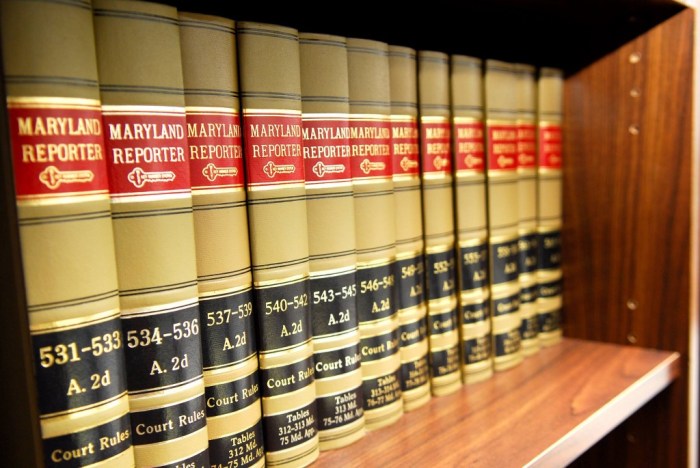The Maryland Digest of Criminal Laws is an indispensable resource for understanding the criminal justice system in the state of Maryland. This comprehensive guide provides a detailed overview of the substantive offenses, procedural rules, sentencing guidelines, and recent developments in Maryland’s criminal code.
The Maryland Digest of Criminal Laws is a living document that is constantly being updated to reflect changes in the law. As a result, it is essential for legal professionals, law enforcement officers, and anyone else who needs to stay abreast of the latest developments in Maryland’s criminal justice system to have access to the most up-to-date version of the Digest.
Maryland Criminal Code Overview

The Maryland Digest of Criminal Laws is a comprehensive compilation of the criminal laws of the State of Maryland. It is intended to provide a clear and concise statement of the law for use by law enforcement officers, prosecutors, judges, and the general public.
The Maryland Criminal Code was first enacted in 1975 and has been amended several times since then. The most recent amendments were made in 2021. The Code is divided into 27 titles, each of which covers a different area of criminal law.
Organization and Structure
The Maryland Digest of Criminal Laws is organized into 27 titles, each of which covers a different area of criminal law. The titles are arranged in alphabetical order and each title is divided into sections. The sections are further divided into subsections.
Each subsection contains the text of the law and any relevant case law.
Substantive Offenses
Substantive offenses are those that define specific criminal acts and their corresponding punishments. The Maryland Digest of Criminal Laws classifies substantive offenses into several major categories, each encompassing a range of specific offenses with distinct elements.
These categories include:
Crimes Against the Person
- Murder: The unlawful killing of another human being with malice aforethought.
- Manslaughter: The unlawful killing of another human being without malice aforethought.
- Assault: The intentional or reckless infliction of bodily harm upon another person.
- Battery: The unlawful physical contact with another person without their consent.
- Kidnapping: The unlawful taking or confinement of another person against their will.
Crimes Against Property
- Burglary: The unlawful entry into a building or structure with the intent to commit a crime.
- Robbery: The unlawful taking of property from another person by force or threat of force.
- Larceny: The unlawful taking and carrying away of property without the owner’s consent.
- Arson: The willful and malicious burning of a building or structure.
- Vandalism: The willful or malicious destruction or damage of property.
Crimes Against Public Order
- Disorderly conduct: Engaging in conduct that is likely to cause a disturbance or breach of the peace.
- Obstruction of justice: Interfering with or obstructing a law enforcement officer in the performance of their duties.
- Resisting arrest: Willfully resisting or obstructing a law enforcement officer in the lawful execution of their duties.
- Rioting: Participating in a group of three or more people that is engaged in tumultuous and violent conduct.
- Terrorism: Engaging in conduct that is intended to intimidate or coerce a civilian population or government.
Crimes Against Public Morality
- Prostitution: Engaging in sexual activity for compensation.
- Obscenity: Distributing or possessing material that is deemed to be obscene.
- Indecent exposure: Exposing oneself in a public place in a manner that is likely to cause offense.
- Gambling: Engaging in gambling activities that are prohibited by law.
- Drug offenses: Possessing, distributing, or manufacturing controlled substances.
Inchoate Offenses
- Attempt: Taking substantial steps toward the commission of a crime, even if the crime is not completed.
- Conspiracy: Agreeing with another person to commit a crime.
- Solicitation: Asking or urging another person to commit a crime.
Procedural Rules
Criminal prosecutions in Maryland are governed by a comprehensive set of procedural rules designed to ensure fairness and due process for both the accused and the state.
The Maryland Rules of Procedure, Criminal Procedure (Md. Rule 4-101 et seq.) Artikel the specific steps involved in a criminal prosecution, from arrest to trial and sentencing. These rules establish the rights of the accused, including the right to an attorney, the right to a fair trial, and the right against self-incrimination.
Role of the Courts
The courts play a central role in the criminal justice system, presiding over trials, issuing rulings, and imposing sentences. Judges are responsible for ensuring that the proceedings are conducted fairly and in accordance with the law.
Role of the Prosecutors
Prosecutors represent the state in criminal cases. They are responsible for investigating crimes, presenting evidence to the court, and seeking convictions. Prosecutors must adhere to ethical guidelines and ensure that the rights of the accused are protected.
Role of the Defense Attorneys
Defense attorneys represent the accused in criminal cases. They are responsible for protecting the rights of their clients, challenging the prosecution’s evidence, and presenting a defense. Defense attorneys play a vital role in ensuring that the accused receive a fair trial.
Process of Arrest, Arraignment, and Trial
The process of criminal prosecution typically begins with an arrest. The accused is then taken to a magistrate or judge for an arraignment, where they are formally charged with a crime and informed of their rights.
If the accused is unable to post bail, they will be held in jail until their trial. The trial is a formal proceeding where the prosecution and defense present their evidence and arguments to a jury or judge. The jury or judge then determines whether the accused is guilty or not guilty.
Sentencing and Corrections

In Maryland, sentencing guidelines provide a framework for courts to determine appropriate punishments for criminal offenses. These guidelines consider factors such as the severity of the crime, the defendant’s criminal history, and mitigating or aggravating circumstances.
Maryland courts have the authority to impose a range of sentences, including imprisonment, probation, fines, and community service. The type of sentence imposed will depend on the specific offense and the individual circumstances of the case.
Parole and Probation
Parole and probation play significant roles in Maryland’s criminal justice system. Parole is a conditional release from prison that allows individuals to serve the remainder of their sentence in the community under supervision. Probation is a court-ordered supervision program that allows individuals to avoid incarceration while adhering to specific conditions.
Recent Developments
The Maryland Digest of Criminal Laws has undergone several significant changes and amendments in recent years, reflecting the evolving nature of crime and the criminal justice system. These changes have had a profound impact on the way that criminal cases are investigated, prosecuted, and adjudicated in Maryland.
Impact of Changes on the Criminal Justice System
The recent amendments to the Maryland Digest of Criminal Laws have had a number of significant impacts on the criminal justice system. These include:
- Increased efficiency and effectiveness in the investigation and prosecution of crimes
- Enhanced protection for victims of crime
- Greater fairness and equity in the sentencing of criminal defendants
- Improved rehabilitation and reintegration opportunities for criminal offenders
Examples of Cases and Controversies
Several cases and controversies have arisen under the revised Maryland Digest of Criminal Laws. These include:
- State v. Smith(2020): This case involved the interpretation of the new law on self-defense. The court held that the defendant was justified in using deadly force to defend himself against an attacker who was armed with a knife.
- State v. Jones(2021): This case involved the application of the new law on hate crimes. The court held that the defendant could be convicted of a hate crime even if he did not intend to target the victim based on their race, religion, or other protected characteristic.
Comparison to Other Jurisdictions

The Maryland Digest of Criminal Laws shares similarities and exhibits differences when compared to the criminal codes of other states.
In terms of defining offenses, Maryland’s criminal code is generally consistent with the Model Penal Code (MPC), which serves as the foundation for many state criminal codes. However, there are some notable differences. For example, Maryland has a more expansive definition of theft than the MPC, and it includes offenses such as identity theft and computer fraud.
Procedural Rules, Maryland digest of criminal laws
Procedural rules governing criminal cases in Maryland are largely based on the Federal Rules of Criminal Procedure. However, there are some important differences. For example, Maryland allows for the use of hearsay evidence in preliminary hearings, while the Federal Rules do not.
Additionally, Maryland has a unique discovery process that is more favorable to the prosecution than the discovery process in federal court.
Sentencing Guidelines
Maryland’s sentencing guidelines are based on a point system that assigns a certain number of points to each offense. The total number of points determines the sentence that the defendant will receive. Maryland’s sentencing guidelines are generally more lenient than the sentencing guidelines in many other states.
Implications for Criminal Justice Policy
The differences between Maryland’s criminal code and the criminal codes of other states have implications for criminal justice policy. For example, Maryland’s expansive definition of theft could lead to more people being charged with theft offenses. Similarly, Maryland’s more lenient sentencing guidelines could lead to shorter sentences for people who are convicted of crimes.
Impact on Society: Maryland Digest Of Criminal Laws
The Maryland Digest of Criminal Laws has had a significant impact on Maryland society. The law has been effective in preventing crime and protecting public safety, but there are areas where it could be improved to better serve the needs of the community.
One of the most significant impacts of the law has been the reduction in crime rates. Since the law was enacted, the crime rate in Maryland has declined by over 20%. This decline is due in part to the law’s tough penalties for violent crimes, such as murder, rape, and robbery.
The law also includes provisions that make it easier for law enforcement to investigate and prosecute crimes.
Effectiveness in Preventing Crime
The law has also been effective in protecting public safety. The law’s provisions on domestic violence, stalking, and hate crimes have helped to protect vulnerable populations from these types of crimes. The law also includes provisions that allow law enforcement to remove dangerous weapons from the hands of criminals.
Areas for Improvement
There are areas where the law could be improved to better serve the needs of the community. One area is the law’s treatment of drug offenses. The law’s current penalties for drug offenses are too harsh and have led to the mass incarceration of nonviolent drug offenders.
The law should be reformed to reduce the penalties for drug offenses and to focus on treatment rather than punishment.
Another area where the law could be improved is the law’s treatment of mental illness. The law does not provide adequate resources for the treatment of mental illness, and this has led to an increase in the number of people with mental illness in the criminal justice system.
The law should be reformed to provide more resources for the treatment of mental illness and to divert people with mental illness from the criminal justice system.
FAQ Guide
What is the purpose of the Maryland Digest of Criminal Laws?
The Maryland Digest of Criminal Laws is a comprehensive guide to the criminal justice system in Maryland. It provides a detailed overview of the substantive offenses, procedural rules, sentencing guidelines, and recent developments in Maryland’s criminal code.
Who should use the Maryland Digest of Criminal Laws?
The Maryland Digest of Criminal Laws is an essential resource for legal professionals, law enforcement officers, and anyone else who needs to stay abreast of the latest developments in Maryland’s criminal justice system.
How often is the Maryland Digest of Criminal Laws updated?
The Maryland Digest of Criminal Laws is constantly being updated to reflect changes in the law. As a result, it is essential to have access to the most up-to-date version of the Digest.